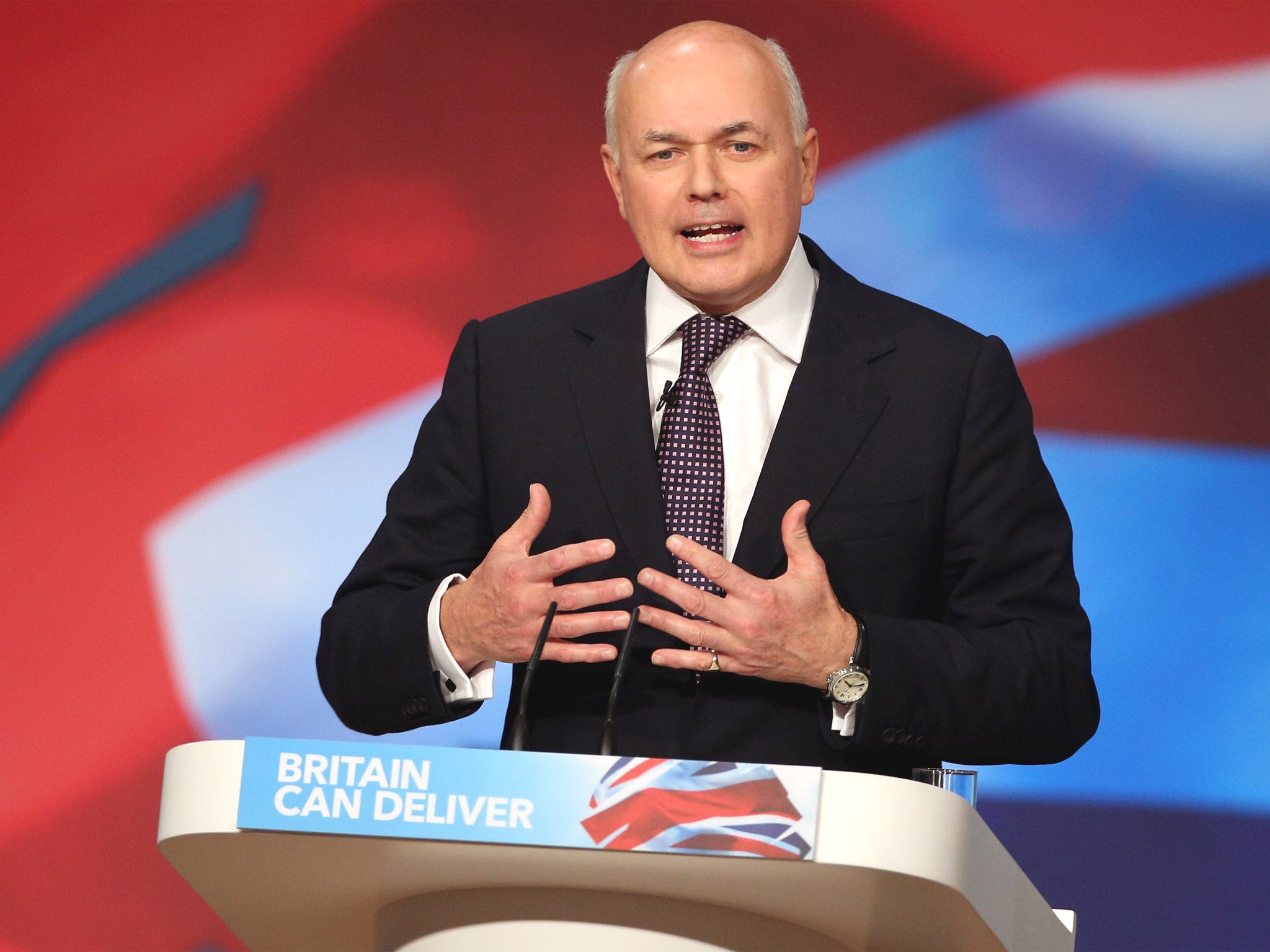Universal credit system risks plunging vulnerable families into debt, warn MPs
Iain Duncan Smith, the Work and Pensions Secretary, believes the reform represents the biggest shake-up of the welfare system since the Second World War

Your support helps us to tell the story
This election is still a dead heat, according to most polls. In a fight with such wafer-thin margins, we need reporters on the ground talking to the people Trump and Harris are courting. Your support allows us to keep sending journalists to the story.
The Independent is trusted by 27 million Americans from across the entire political spectrum every month. Unlike many other quality news outlets, we choose not to lock you out of our reporting and analysis with paywalls. But quality journalism must still be paid for.
Help us keep bring these critical stories to light. Your support makes all the difference.
The most vulnerable families risk debt and hardship as a result of moves to switch all benefit claimants on to the new Universal Credit system from next year, an all-party group of MPs warned last night.
Iain Duncan Smith, the Work and Pensions Secretary, believes the reform represents the biggest shake-up of the welfare system since the Second World War. Universal Credit, which will be received both by the unemployed and people in low-paid jobs, will replace six previous benefits and is designed to “make work pay”.
But the Commons Work and Pensions select committee raised a serious of major concerns over how it will work – and urged Mr Duncan Smith to reconsider the “very ambitious” timetable for its implementation.
The MPs said they were particularly worried that many claimants would struggle to make claims online and might not receive the benefits to which they were entitled. Others who were used to receiving cash every week or fortnight would find it hard to manage monthly payments, they added.
Dame Anne Begg, the committee’s chairwoman, said: “We recognise the new Universal Credit system is likely to be accessible to the majority of claimants. But we have serious concerns about how more vulnerable people will cope with the changes.”
She warned: “The measures the Government plans to put in place to help these claimants may be difficult to access and too slow in identifying who these people are, with the risk they will fall into debt and hardship before extra support can be provided.”
The committee also raised concerns some claimants could fall into rental arrears under the plans, which will see payments to cover rent go to claimants rather than landlords.
And it said it was not convinced by Government promises that the disabled would be better-off under the new system.
Universal Credit will be introduced on a pilot basis in the North-West of England in April and will be rolled out nationally over four years starting next autumn. It will eventually be paid to 8m households.
A spokeswoman for the Department for Work and Pensions said: “Universal Credit will be paid monthly and accessed online because that reflects the experiences of working people. The system needs to make it easier for people to move into work, but we’ve been clear from the outset that we will take steps to ensure vulnerable people don't miss out.”
In the Commons yesterday, David Cameron was challenged by a Labour MP to guarantee that the introduction of the new payment would not be delayed.
He replied: “Universal credit is a good reform and I thought it was welcomed across the House because it puts in place proper work incentives for people at all levels of income and is also highly progressive in channelling money to those who need it the most.
Mr Cameron said: “Universal credit is on time and on budget and indeed a pilot scheme is to start shortly.”
Subscribe to Independent Premium to bookmark this article
Want to bookmark your favourite articles and stories to read or reference later? Start your Independent Premium subscription today.
Join our commenting forum
Join thought-provoking conversations, follow other Independent readers and see their replies
Comments